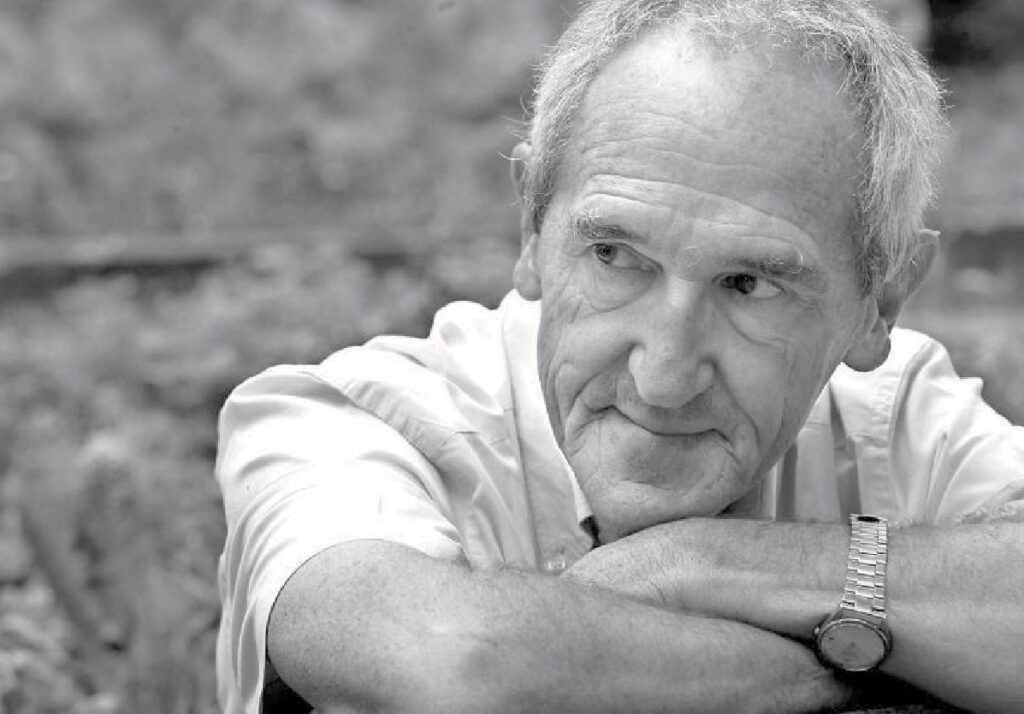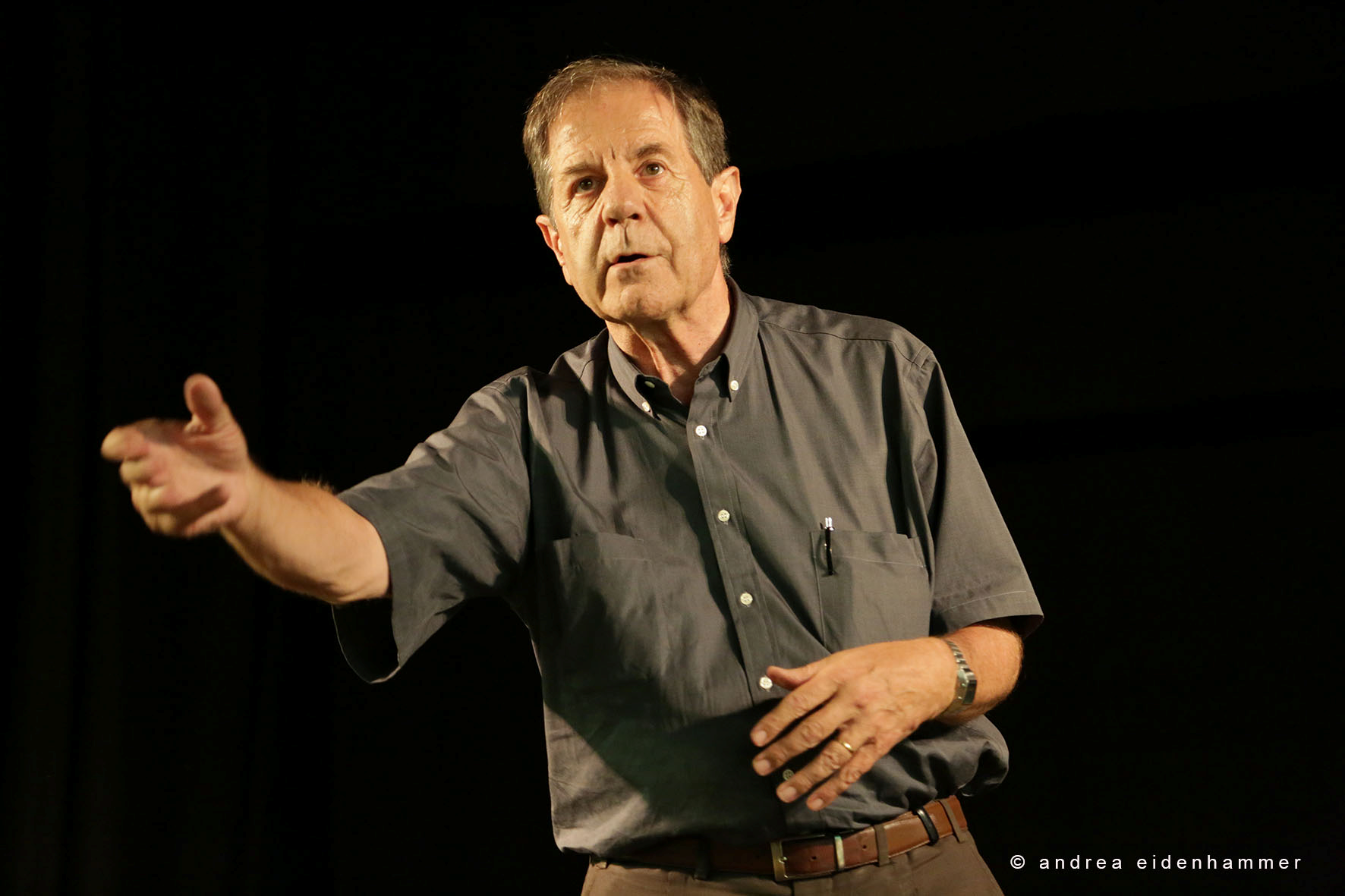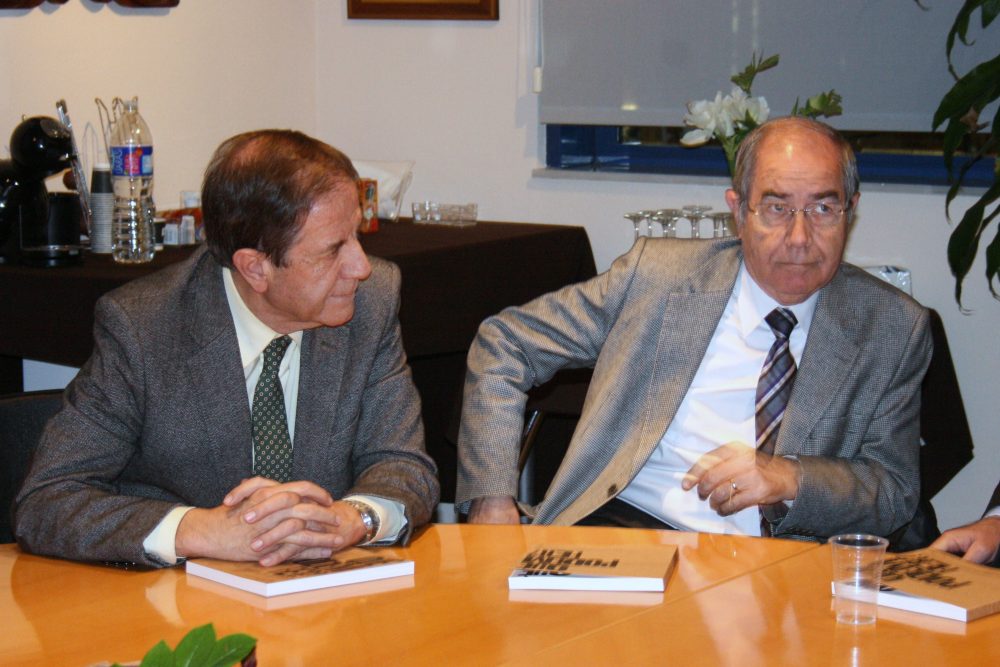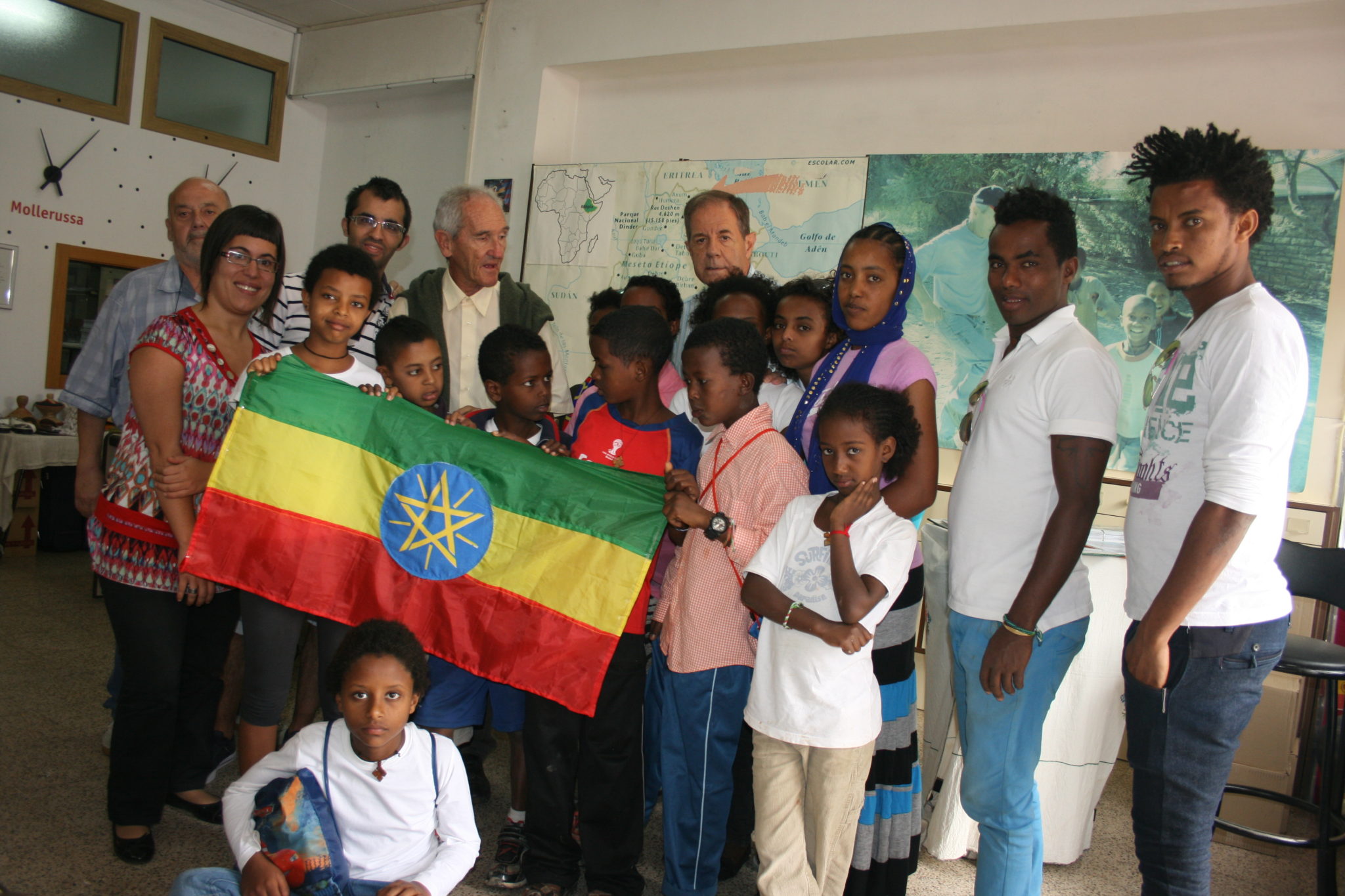Who are we?
The Private Foundation (Centre d’Initiatives Solidaries) CIS Ángel Olaran aims to collaborate whith and provide humanitarian aid, social and educational assistance in Wukro, (a town in the region of Tigray, northern Ethiopia) in collaboration with the Basque Missionary Angel Olaran, who manages the St. Mary’s Institution. Our organization currently gives full support to ensure that all humanitarian aid reaches it’s destination and improves the quality of life and dignity of people from the area.
CIS Ángel Olaran was founded by a group of people from different fields, which in 2005, joined together to raise funds for 2,400 orphans living in Wukro and to reduce other conditions affecting 5 million orphans in a country with 109 million inhabitants.
We are proud to work in one of the worst-hit areas of Africa, affected by constant drought, a high prevalence of extreme poverty and where diseases such as AIDS or tuberculosis proliferate.
Who is Angel Olaran?
Angel Olaran Esnal (Hernani, Guipúzcoa, May 17, 1938), is a “White Father” who spent twenty years as a missionary in Tanzania and, later on in 1991, was destined to the city of Wukro in Tigray, in northern Ethiopia, where he found all the misery that war leaves behind. He was assigned to open a high school, the St. Mary’s Institution, where he became the principal. It depends on the Adigrat Diocesan Catholic Secretariat (ADCS) and the Ethiopian Catholic Church.
His work at the college has gone far beyond being in charge of a “simple” school. At the center agricultural studies, among a variety of subjects, are being taught, and over the time has become a benchmark in this Ethiopian region. This programme assures food security in the area of Tigray and teaches new cultivation techniques, irrigation, using new agricultural products and training farmers in agricultural production techniques.
Thanks to Ángel Olaran’s great social and organizational work, Wukro has been transformed (35,000 residents) from a bunch of refugees from civil war in the area (not even showing on a map) into a city with a multitude of associations (farmers, women, war veterans, disabled, teachers, AIDS patients, and many more. Wukro now counts with social support and with the structures to mitigate the most serious problems: such as finding welcoming families who take care of thousands of orphans, caring for children with severe malnutrition and providing aid for the poorest, a restaurant for the hospital and a for the destitute elderly where they can have a free meal, among many others projects. One of the main transformations has occurred at the high school, which now is one of the most important Agricultural College’s in northern Ethiopia. In addition to its 500 students, it also provides support to nearly three thousand farmers in the region with workshops and dossiers with information that help the farmers to improve their work.
They provide training on agricultural fields, fruit trees, taking care of livestock and also marketing to sell their products. The School has been pioneering on the use of summer rains (only two months) with pipes, repairing the dam of a reservoir, installing water pump pedals to get water from wells, drip irrigation methods, plus an original gigantic project to filter water from the mountain so that it “reappears” in the wells of the valley. In all these activities, Ángel Olaran – with the help of many Spanish and European NGOs – not only acts as a promoter and organizer, but as a father and grandfather who loves and cares for his people, who lovingly nickname him ‘Abba Melaku’ (Father Ángel). Ángel Olaran is ‘Abba Melalu’.
Ángel Olaran proclaims: “The streets are my church and the houses of the people are my altars.”
Ángel Olaran’s main concern is the education of young people. They are a loving and rigorous new generation, responsible both in their personal and family lives as well as their careers. “A good education is the best we can offer them,” Ángel says. And the truth is that it has already begun to bear fruit among those who were his first students, who now fully support him on the projects.
Our book, What can we do? describes in a simple and enjoyable way the work of missionary Ángel Olaran in Wukro, northern Ethiopia and trus tries to bring the two halves of our split world closer.
Ángel Olaran
Who was Angel Pujol?
Àngel Pujol Gorné was born in Mollerussa (Lleida) in 1947. He was an executive from Pujol Group. After his retirement, Àngel Pujol decided to devote body and soul to improve the life expectancy of the disadvantaged becoming the president of the NGO Fundació Privada Centre d’Iniciatives Solidàries Ángel Olaran. Unfortunately he died on January 14, 2015 and now his brother Josep Maria Pujol picks up the baton, as well as his son Miquel Pujol Oliva who has joined to the Foundation Board.
In late 2005 Àngel Pujol visited the hospital in Makelle, in the Tigray region, where Dr. Ferreruela performs voluntarily ocular operations to children and other citizens. Mr. Pujol was impressed by the work being carried out by his surgeon friend, and was interested in all the gaps still to be filled of the suffering citizens in that area. During their stay they travelled to the city of Wukro, where he had his first contact with the Basque missionary Ángel Olaran. They had a strong connection and became friends. At that moment a Collective of Support of Ángel Olaran was created, channelling aid from Spain to Ethiopia and making public the activities carried out by Ángel Olaran in Tigray, mainly in the town of Wukro. Later, in 2009, due to the hard work and dedication to promote the “Wukro Social Development” program, the Foundation CIS Ángel Olaran was created, of which was president.
Ángel Pujol always said about Ángel Olaran: “An hour to meet him, one day to admire him, and a lifetime to follow him”.
Ángel Pujol
Who is Josep Mª Pujol Gorné?
Josep Mª Pujol Gorné is the current president of the “Fundació Privada del Centre d’Iniciatives Solidàries (CIS) Ángel Olaran” after being unanimously elected by the foundation’s board in the extraordinary meeting held on January 27, 2015. On that occasion the work done was recognized and gratitude and esteem for the kindness and good work of the president Ángel Pujol i Gorne was expressed. The members of the foundation board had the opportunity to live and share from the first day, due to the illusion which he always instilled, the motivation, the work and successes of the great projects, as well as the joy for having achieved the smallest ones.
The new chairman of CIS goes ahead with the supportive cooperation started by his brother. To achieve the goals, he is backed by the Foundation Board, team members and volunteers.
Mr. Josep Maria Pujol Gorné, who was born in Mollerussa on December 15, 1941, is the current CEO of Prefabricados Pujol company, a family company which he joined in the late 60’s. It was managed then by his father and had 15 employees and a sole work center. Shortly afterwards he and his brother Ángel started the company’s expansion.
The CIS president also has wide experience in the cooperation world as he has been from 1995 to December 2007 the president of the NGO Fundació Lleida Solidària, belonging to the Building Engineers’ professional Association.
In June 1999 the Catalan Government appointed him president of the Social Council of the University of Lleida.
With regards to his business and social career, his work has been recognized by institutions and organizations involved in the business world. He has received for his career several awards such as the “Catalunya Construcció”; the Ildefons Cerdà medal and the “Cámara de Comerç i Industria de Lleida” prize. In reference to his work in connection with society, he has been awarded the Gold Medal by the University of Lleida (September 2008), the Sant Jordi Cross by the Generalitat de Catalunya (April 2009) and the Gold Medal of the city of Lleida (May 2009).
Projects
From CIS Ángel Olaran many projects have been carried out in this impoverished area called ‘Horn of Africa’. One of the most important projects of development and cooperation was founded in 2009 by the Spanish Agency for International Cooperation (AECID), consisting of the construction of a dam for irrigation water to assure food security for the population of the area since it allowed watering 100 Ha and benefits about 300 families in Wukro. It ended in 2012 with the collaboration of the ‘Fundació Lleida Solidària (FLS)’.
The CIS Ángel Olaran shares and gives economic support to the projects developed with it’s official partner in the region, the St. Mary’s Institution, and some associations belonging to the Adigrat Diocesan Catholic Church, all working in the implementation of projects of international development and cooperation.
Our Foundation has also worked with projects of the Daughters of Charity of St. Vincent de Paul Louise de Marillac, the Daughters of Charity, St. Louise Eye Clinic with Sister Margaret, with Sister Meaza, Daughter of the Sisters of Charity in Makelle, with Sisters Brikti and Tesfay, both Daughters of Charity of Alitena, and also with Tewele Berhane, director of Wukro Social Development Program at St. Mary’s School.
During all these years we have developed many projects, but we would like to emphasize the following points:
-Providing a containment system
-Provision of a contained and piped water, to improve food security for the people of Wukro. This programme was supported and funded by the AECID (Agencia Española de Cooperación Internacional y Desarollo).
-Integration of socially excluded people with HIV virus in the society of Wukro
-Integrating young people with high risk of social exclusion through social programmes and vocational training.
-Improve the quality of life of hundreds of children in Wukro.
-Family-reunification of kids with parents in Wukro.
-Wukro-Vocational Education Centre in Ethiopia.
-Access to food, housing, and preventive health education in Wukro.
-Financing AID projects in Wukro.
-Sport Project in Wukro to prevent young people from being excluded and to help them achieve physical and emotional growth.
-Construction of a water-well in the city of Mekele, Ethiopia.
-Construction of a water-well in the city of Adigrat, Ethiopia.
It is also noteworthy, that from our headquarters, CIS Ángel Olaran, we have shipped containers with different material such as sewing machines, cars, stone crushing machines, a tractor with tanks to transport drinking water and medical supplies. At least every two years we try to ship a container to Wukro.
In addition, we published the following book:
The first book “Ángels of Wukro” tells us about the struggle against poverty in Wukro, a corner of Ethiopia. Mayte Pérez Báez explains to us, the everyday life and experiences of Ángel Olaran.
In 2013, our second book “What can we do?” was edited. It tells us the facts of Ángel Olaran, a missionary in northern Ethiopia. Josep Maria Jaumà, the author, explains that it was a very special book to write and that the time he spent with Ángel Olaran was a great experience.
Both books have raised the voice about the living conditions in Wukro and the work that Ángel Olaran does, helping orphans and people in need in Wukro.
Information on the book “What can we do?”
Santiago Petschen Verdaguer is a Doctor in Political Science; he has a degree in Philosophy and is Emeritus Professor of International Relations at the Complutense University of Madrid.
The book we are going to talk about, first of all, reveals the aim which is behind this interesting work.
It is essential to let people know about the fruitful community development work that takes place in Wukro in order to be imitated by other underdeveloped countries, as well as to be taken as a model for all who are interested in the community development work.
In 1995 – after a period of study and reflection – two “White Fathers” (Christian priests), Ángel Olaran and José Luis Bandrés, achieved with the cooperation of the inhabitants of the region (currently 35,000) in 16 years what may well be called a model project.
The author knows accuracy and loves detail, the proper handling of sensitivity and plasticity, as well as the special care in explaining in a tempered manner certain ideological subjects. The writing is dense and all the space given to the author is well used among a large number of artistic photographs. There is no literary waste.
What an appropriate title. Knowing how much has been done, the author asks: “What can we do?” He can’t be more specific.
How nice is the description of the city, the houses from the inside and outside and the facilities. With this inspired journey the author brings the reader closer to the people in Ethiopia: Rachel, Daniel, Letish, Ngesti, Rosa, the mother, the grandma and so on. All of them have been known by the author before telling us what they are like. He conveys to us the people’s everyday lives and work. He sends us an optimistic message showing the achievement of the community in development in such a human and familiar manner.
The Educational Aspect
One of the key values that Ángel Olaran, the community leader of Wukro, strives to install is education.
All children are in school. In addition, part of them go to the parish workshops of cutting, embroidery, drawing or work with wood and iron. Orphans go to do their homework to the mission where they must show their marks and their workbooks. They make sure that primary school children speak English fluently. They are taught not to neglect cleaning, speaking in public or irrigating trees. Children learn not to accept gifts in order not to become beggars. They are urged to do things themselves right down to the smallest detail. Education should be personalized and open to dialogue.
Within this educational aspect attention is paid to those who need tutoring, which is granted in the Office of Social Affairs. This is aimed at those students who, in order not to be separated from their peers, need more dedication and parallel action, which cannot be usually offered by their teachers.
Every morning Ángel organizes the Morning Circle in the Agricultural School. It lasts five minutes. In it he speaks to the students about local and international issues, giving a thoughtful explanation to them.
The Technical Aspect
Technical factors should be essential in a community development project. This is what happens in Wukro, and it’s hub is the School of Agriculture. It has university level and is open to about two thousand farmers in the area. It has model orchards to be an example for the peasants. It fosters the drop wise with pumped water. They experiment with herbs which retain moisture, and they trench the land in order to collect rainwater to obtain aquifers in the valley.
With the help of 600 workers they have been able to bring the stored water from torrential summer rains to the bottom of the valley and achieve the production of good grass for cattle. This way they have lots of wells and reservoirs. The water pumps that are used are driven by pedal power just like sewing machines. The school also backed the repair work of a 11 kilometres long canal. Technical means are also used with livestock.
The Social Aspect
In such a poor country, people who need special attention in their basic needs, sometimes reaching misery, are a large number: orphans, malnourished, abandoned elderly, AIDS patients, unemployed, and so on. To help as many as possible of those thousands of people, the Office of Social Services was created. This Office is not directly directed by Olaran but depends on the Bishopric of Adigrat. It is an essential part of the organization and of the activities of the Mission. It faces enormous needs. Among other things, this office provides microloans of 5,000 birr (200 Euro) that must be returned each month little by little without interest. Thanks to these microloans it has been possible to set up small shops or stalls and buy poultry or sewing machines.
Foreign Relations
Throughout the entire book various institutions are cited, which come to the mission from different parts of the world, usually from many kilometres away. As an example, we find overseas voluntary workers coming from different countries, including a group of Germans. Among the NGOs we find: “Manos Unidas”; one called “Red Deporte y Cooperación” and the Spanish NGO “Lleida Solidària” focused on construction; A counsellor of the Basque Government; The Generalitat de Catalunya. And last but not least: the “Centre d’Iniciatives Solidaries”, which has its headquarters in Mollerussa (Lleida).
As we can see, they all work independently but coordinated. Apparently, in such a plural world with so many organizations that wish to cooperate, this is the way to do it properly. One part is from one place. Another part is from another. In such plural action, however, coordination is absolutely essential. And now, let’s talk about its leader.
Leadership
Let us talk about leadership. The leader is certainly the most important factor in any community development project. And in this case, it is very clear. There is a leader who is a reference for all objectives. This leader is Ángel Olaran. If this project, that we have called pilot or model, wants to be imitated elsewhere, in this writer’s humble opinion, the first thing one has to do is find a proper leader who must have some specific qualities. In the book they refer to them as follows: “figures and work have to match to the last detail. If at any time it is discovered that it isn’t so, then there is no leader”. We can find quotations like these elsewhere in the book. For example: ”what matters is to fulfil projects” or “I only care about the solutions.”
The success of the leadership provided in Wukro lies in the combination of these two factors: the educational and the technical. The technical aspect entails an economic improvement (which is essential) which has an effect on education. Neither of the two factors may fail. Only a good leader can coordinate properly economy and learning. This is the way to achieve a promising development. The way he manages that the City Council mobilizes hundreds of volunteers for a common agricultural work is a clear example of such leadership.
Due to the great importance of the leader in this kind of projects, the author of the book dedicated his last chapter to Ángel Olaran. He and his work captivated an entrepreneur, Ángel Pujol, who – after retiring – wanted to take effective action for some project that was worth to be supported. When he found Olaran’s project in the Horn of Africa he got excited. This proofs the force that is transmitted by its leader. Therefore, one of the great merits of this book is that it embodies the whole work of the Mission of Wukro – what we have called pilot or model project – with Ángel Olaran. When there is embodiment, the effect you accomplish with the publication is without doubt more impressive. When a project is personalized (which is a result of multiple actions) it is easier to know where you are going and it becomes more attractive and encouraging to participate.
Finally
Today, our Foundation, CIS Ángel Olaran continues giving full support to the Basque missionary and works hard to raise funds in order to ensure the education and health of children under Ángel Olaran’s protection.
Activities and events are regularly organized to raise awareness of issues related to the cooperation with Ethiopia.
Some of the activities to raise funds that allow to continue helping Ángel Olaran, are: motorbike rallies, athletic marathons, solidarity dinners, card games, fashion shows, theatre performances, sports tournaments, etc. Every event is done to raise funds and to sensitise about the disadvantages in the Third World.
Contact
To get more information about our Foundation you can follow us on social media and if you want, you can be part of our organization by becoming a partner.
Our registered office is:
Av. del Canal, 7
Tel. (00 34) 973 601 097
25230 MOLLERUSSA (Lleida)
If you still have doubts or simply have any questions, you can send us an email to the following addresses:
Donations
If you would like to kindly help us in any of our projects or make a donation, please note that the Private Foundation Centre d’Initiatives Solidàries (CIS) Ángel Olaran, is included among the entities benefiting from patronage according to the provisions Act 49/2002 of 23 December on the taxation of non-profit entities and tax incentives for patronage.
You can either donate straight through our web or use our bank account.
Our banking details are as follow:
CODE SWIFT: BSCHESMM IBAN: ES8300491886742010703392
Our Foundation will issue a certificate with the annual total donation, so that under the Charity Act. Ley -49/2002 you will be able to deduct 30 % of the donation if you donated as a civil person, or 35 % of the Corporation Tax in case of “Legal Entities”. You will always be able to make the deduction, if you comply with the conditions.
Last but not least, we want to thank you for the time you shared with us reading this document, and we would like to assure you that we will continue fighting for a better world with all our strength and hope.







